- atherosclerosis, and early death
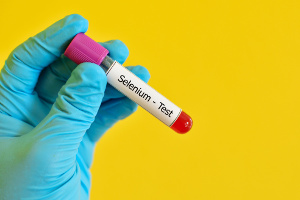 Cholesterol is an essential compound with many different functions. However, it can also turn into a potentially dangerous substance if it oxidizes and is embedded in the blood vessel walls. This oxidative process is what eventually leads to atherosclerosis. The trace element selenium protects against atherosclerosis because of its antioxidant properties and because of other mechanisms, according to a review article published in Biomedicine. This is highly relevant in our part of the world where cardiovascular disease is the leading cause of death, and where seleniumdeficiency is so widespread.
Cholesterol is an essential compound with many different functions. However, it can also turn into a potentially dangerous substance if it oxidizes and is embedded in the blood vessel walls. This oxidative process is what eventually leads to atherosclerosis. The trace element selenium protects against atherosclerosis because of its antioxidant properties and because of other mechanisms, according to a review article published in Biomedicine. This is highly relevant in our part of the world where cardiovascular disease is the leading cause of death, and where seleniumdeficiency is so widespread.
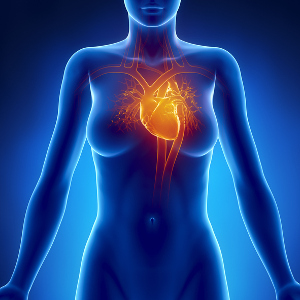 There is a clear link between magnesium intake and the risk of heart diseases and sudden cardiac death in postmenopausal women, according to a study that is published in Journal of Women’s Health. Unfortunately, many women are not diagnosed with heart disease at a sufficiently early stage. It is also a fact that many postmenopausal women take calcium supplements for bone health. However, if they also lack magnesium, which is responsible for the calcium distribution in the body, the calcium supplements may instead increase the risk of coronary atherosclerosis. According to new and earlier research, we must focus a lot more on telling women how important it is to get enough magnesium at all stages of life – not least after menopause.
There is a clear link between magnesium intake and the risk of heart diseases and sudden cardiac death in postmenopausal women, according to a study that is published in Journal of Women’s Health. Unfortunately, many women are not diagnosed with heart disease at a sufficiently early stage. It is also a fact that many postmenopausal women take calcium supplements for bone health. However, if they also lack magnesium, which is responsible for the calcium distribution in the body, the calcium supplements may instead increase the risk of coronary atherosclerosis. According to new and earlier research, we must focus a lot more on telling women how important it is to get enough magnesium at all stages of life – not least after menopause.
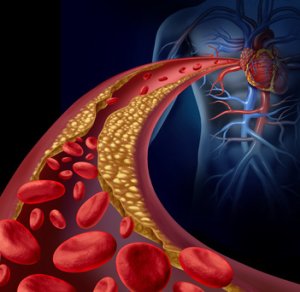 Atherosclerosis is one of the leading causes of death in the Western world, and the heart is particularly vulnerable. According to a study from the University of Birmingham, Alabama (USA), foods that are rich in potassium such as bananas, potatoes, avocado, and almonds protect against this disease, which takes years to develop. Beware that too much salt and the use of diuretics may deplete the body’s potassium stores.
Atherosclerosis is one of the leading causes of death in the Western world, and the heart is particularly vulnerable. According to a study from the University of Birmingham, Alabama (USA), foods that are rich in potassium such as bananas, potatoes, avocado, and almonds protect against this disease, which takes years to develop. Beware that too much salt and the use of diuretics may deplete the body’s potassium stores.
- and help prevent atherosclerosis
 On a global scale, atherosclerosis is the leading cause of death due to heart failure or stroke. Atherosclerosis causes symptoms such as breathing difficulty, calf pain,impotence, and poor memory as a result of organs and tissues not getting enough blood and oxygen. Because the condition develops slowly and many people are not even aware of its presence before it is too late, early prevention is vital. According to a study that is published in the science journal Circulation, four grams of fish oil daily can lower levels of triglycerides, a blood lipid that is considered to be more harmful than cholesterol. It is also important to address the indirect causes of elevated triglyceride levels such as overweight, metabolic syndrome and type 2 diabetes. Consuming too many carbohydrates may even cause fatty liver and result in excess triglyceride production. On the other hand, triglycerides also have health properties, which we will take a closer look at for clarity.
On a global scale, atherosclerosis is the leading cause of death due to heart failure or stroke. Atherosclerosis causes symptoms such as breathing difficulty, calf pain,impotence, and poor memory as a result of organs and tissues not getting enough blood and oxygen. Because the condition develops slowly and many people are not even aware of its presence before it is too late, early prevention is vital. According to a study that is published in the science journal Circulation, four grams of fish oil daily can lower levels of triglycerides, a blood lipid that is considered to be more harmful than cholesterol. It is also important to address the indirect causes of elevated triglyceride levels such as overweight, metabolic syndrome and type 2 diabetes. Consuming too many carbohydrates may even cause fatty liver and result in excess triglyceride production. On the other hand, triglycerides also have health properties, which we will take a closer look at for clarity.
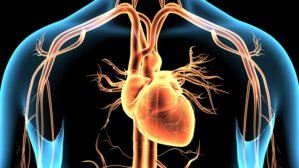 On a global scale, cardiovascular disease and coronary occlusion cause more deaths than any other factor. However, according to a large meta-analysis from Harvard T. H. Chan School of Public Health and Brigham and Women’s Hospital in Boston, USA, people who take fish oil have a lower risk of atherosclerosis and cardiac failure than those, who do not take the supplements. The study also revealed that high-dosed fish oil supplementation delivers more health benefits than the lower doses. Atherosclerosis develops gradually, and millions of people die every year because of this problem, which means that even minor changes such as taking supplements and eating a healthier diet, can improve quality of life and prevent many deaths. So, according to the new study, how much fish oil is needed in order to obtain the optimal cardiovascular effect?
On a global scale, cardiovascular disease and coronary occlusion cause more deaths than any other factor. However, according to a large meta-analysis from Harvard T. H. Chan School of Public Health and Brigham and Women’s Hospital in Boston, USA, people who take fish oil have a lower risk of atherosclerosis and cardiac failure than those, who do not take the supplements. The study also revealed that high-dosed fish oil supplementation delivers more health benefits than the lower doses. Atherosclerosis develops gradually, and millions of people die every year because of this problem, which means that even minor changes such as taking supplements and eating a healthier diet, can improve quality of life and prevent many deaths. So, according to the new study, how much fish oil is needed in order to obtain the optimal cardiovascular effect?
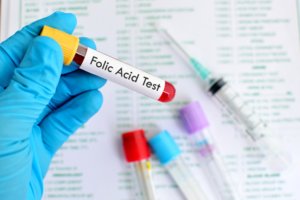 Hypertension is a growing problem. Worldwide, it causes more premature deaths than any other risk factor. Chinese researchers have now found that supplementation with a combination of folic acid and anti-hypertensive medicine lowers the risk of stroke by nearly 75 percent. It is important to underline that many people have elevated blood pressure without knowing about it, and many things can cause a folic acid deficiency or poor utilization of the vitamin.
Hypertension is a growing problem. Worldwide, it causes more premature deaths than any other risk factor. Chinese researchers have now found that supplementation with a combination of folic acid and anti-hypertensive medicine lowers the risk of stroke by nearly 75 percent. It is important to underline that many people have elevated blood pressure without knowing about it, and many things can cause a folic acid deficiency or poor utilization of the vitamin.
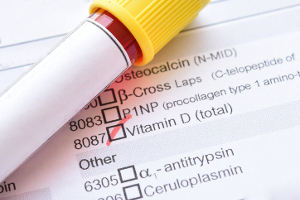 Coronary occlusion is the leading cause of death worldwide. Type 2 diabetes is spreading like a bushfire and this disease is characterized by atherosclerosis and early death. Diet and lifestyle are of vital importance and the same goes for vitamin D. According to a new American study that is published in Nutrients, people whose blood levels of vitamin D are above the official threshold levels have fewer biomarkers of cardiovascular disease, type 2 diabetes, and metabolic syndrome.
Coronary occlusion is the leading cause of death worldwide. Type 2 diabetes is spreading like a bushfire and this disease is characterized by atherosclerosis and early death. Diet and lifestyle are of vital importance and the same goes for vitamin D. According to a new American study that is published in Nutrients, people whose blood levels of vitamin D are above the official threshold levels have fewer biomarkers of cardiovascular disease, type 2 diabetes, and metabolic syndrome.
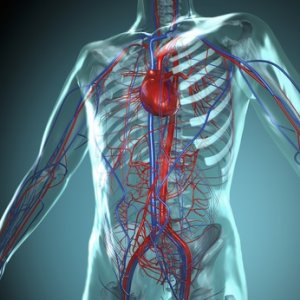 There is absolutely no reason not to consume eggs, meat, butter and other cholesterol-filled foods with a good conscience. American dietary guidelines have finally exonerated cholesterol, which happens to be an essential compound. Many scientists actually claim that atherosclerosis and cardiovascular disease are both a result of inflammation and lack of specific micronutrients. It is important to pay attention to factors that are known to promote inflammation in the body and take the necessary steps by looking after your circulatory system, making healthy lifestyle choices, and possibly even using supplements.
There is absolutely no reason not to consume eggs, meat, butter and other cholesterol-filled foods with a good conscience. American dietary guidelines have finally exonerated cholesterol, which happens to be an essential compound. Many scientists actually claim that atherosclerosis and cardiovascular disease are both a result of inflammation and lack of specific micronutrients. It is important to pay attention to factors that are known to promote inflammation in the body and take the necessary steps by looking after your circulatory system, making healthy lifestyle choices, and possibly even using supplements.
- and supplements save lives
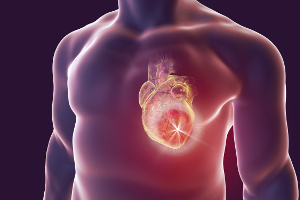 Vitamin D deficiencies are widespread and result in an increased risk of atherosclerosis, heart disease, and hypertension, according to a new study from University of South Australia. Because cardiovascular diseases are the leading cause of death globally, scientists see a huge potential in vitamin D, a nutrient that may be able to save millions of lives.
Vitamin D deficiencies are widespread and result in an increased risk of atherosclerosis, heart disease, and hypertension, according to a new study from University of South Australia. Because cardiovascular diseases are the leading cause of death globally, scientists see a huge potential in vitamin D, a nutrient that may be able to save millions of lives.
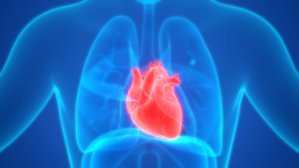 Get lots of sunlight. It is the richest source of vitamin D. Also make sure to take a vitamin D supplement if, for some reason or other, you are unable to get enough sun exposure – and most certainly during the winter period. Studies show that lack of vitamin D may lead to heart failure due to insulin resistance, which is an early stage of diabetes. In other words, having too little vitamin D in your blood may impair the heart’s ability to take up blood sugar and that can cause a morbid enlargement of the cardiac muscle. This was seen in an Indian study that is published in the journal Molecular Nutrition and Food Research. The scientists see vitamin D as having huge potential in the prevention and treatment of cardiac failure plus insulin resistance and diabetes that is spreading like a bushfire.
Get lots of sunlight. It is the richest source of vitamin D. Also make sure to take a vitamin D supplement if, for some reason or other, you are unable to get enough sun exposure – and most certainly during the winter period. Studies show that lack of vitamin D may lead to heart failure due to insulin resistance, which is an early stage of diabetes. In other words, having too little vitamin D in your blood may impair the heart’s ability to take up blood sugar and that can cause a morbid enlargement of the cardiac muscle. This was seen in an Indian study that is published in the journal Molecular Nutrition and Food Research. The scientists see vitamin D as having huge potential in the prevention and treatment of cardiac failure plus insulin resistance and diabetes that is spreading like a bushfire.
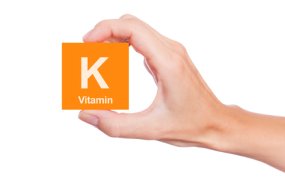 Vitamin K is primarily for its role in helping blood coagulate. Otherwise, the vitamin is heavily underrated. For instance, the bones depend on vitamin K, and those people who consume the greatest amounts of vitamin K have the lowest risk of cardiovascular disease, atherosclerosis, and blood clots. It is important to know the difference between vitamin K1 and K2 and to know how well they get absorbed in the body.
Vitamin K is primarily for its role in helping blood coagulate. Otherwise, the vitamin is heavily underrated. For instance, the bones depend on vitamin K, and those people who consume the greatest amounts of vitamin K have the lowest risk of cardiovascular disease, atherosclerosis, and blood clots. It is important to know the difference between vitamin K1 and K2 and to know how well they get absorbed in the body.
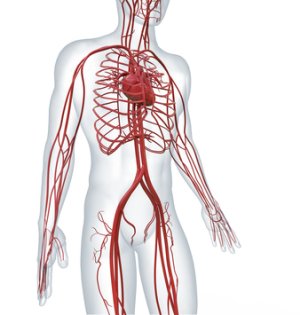 In a matter of four months only, large doses of vitamin D were able to reduce arterial stiffness in young, overweight but otherwise healthy Afro-Americans, according to a study from Georgia, the United States. The study also showed that those participants, who only took the officially recommended quantities of vitamin D, had increased arterial stiffness. This suggests that the official vitamin D recommendations are too low to prevent stiff arteries and atherosclerosis. Another thing is that dark-skinned people living at northern latitudes, overweight individuals, older people diabetics, and those who overuse sun screen are at increased risk of synthesizing too little vitamin D.
In a matter of four months only, large doses of vitamin D were able to reduce arterial stiffness in young, overweight but otherwise healthy Afro-Americans, according to a study from Georgia, the United States. The study also showed that those participants, who only took the officially recommended quantities of vitamin D, had increased arterial stiffness. This suggests that the official vitamin D recommendations are too low to prevent stiff arteries and atherosclerosis. Another thing is that dark-skinned people living at northern latitudes, overweight individuals, older people diabetics, and those who overuse sun screen are at increased risk of synthesizing too little vitamin D.
 Vitamin K occurs in different forms and has a variety of biological functions. A growing number of older people want to be able to manage on their own for as long as possible, which is why a team of scientists from Tufts University, USA, has taken a closer look at the risk factors that are known to impair mobility. The researchers discovered that lack of vitamin K is a serious problem. Other studies suggest that vitamin K deficiencies are quite widespread because older people tend to change their diet habits and use cholesterol-lowering medicine.
Vitamin K occurs in different forms and has a variety of biological functions. A growing number of older people want to be able to manage on their own for as long as possible, which is why a team of scientists from Tufts University, USA, has taken a closer look at the risk factors that are known to impair mobility. The researchers discovered that lack of vitamin K is a serious problem. Other studies suggest that vitamin K deficiencies are quite widespread because older people tend to change their diet habits and use cholesterol-lowering medicine.
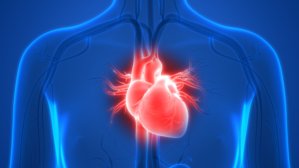 Heart failure is when the heart loses power and is no longer able to deliver blood to the different parts of the body. Typical symptoms are shortness of breath and physical exhaustion. There may also be symptoms like fluid retention, persistent coughing, chest tightness, increased sweating, or cold sensitivity. Chronic heart failure may be caused by different things, and it is a life-threatening condition. However, according to a study that is published in Journal of Clinical Investigation, magnesium supplementation can improve a type of heart failure called diastolic dysfunction. Previous studies have demonstrated that supplements of Q10 can also improve cardiac function in patients with heart failure.
Heart failure is when the heart loses power and is no longer able to deliver blood to the different parts of the body. Typical symptoms are shortness of breath and physical exhaustion. There may also be symptoms like fluid retention, persistent coughing, chest tightness, increased sweating, or cold sensitivity. Chronic heart failure may be caused by different things, and it is a life-threatening condition. However, according to a study that is published in Journal of Clinical Investigation, magnesium supplementation can improve a type of heart failure called diastolic dysfunction. Previous studies have demonstrated that supplements of Q10 can also improve cardiac function in patients with heart failure.
- and do not have a clue
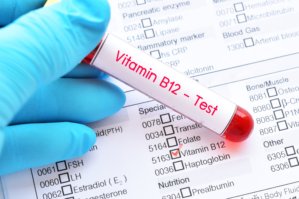 Global heating and the whole climate debate have greatly increased the number of vegans and vegetarians. Their intensions may be good, but what they do not know is that their lifestyle can lead to serious health problems. A Spanish study of vegetarians and vegans has shown that 11% of the study participants had subclinical or clinical vitamin B12 deficiency. Earlier studies supporting this finding. Because the problem is insidious, it is often difficult to see the link between the deficiency and the symptoms caused by anemia or disturbances in the nervous system. The lack of vitamin B12 may also increase the risk of impaired fertility and development disturbances in the fetus. It is therefore a good idea for vegans and vegetarians to take a vitamin B12 supplement.
Global heating and the whole climate debate have greatly increased the number of vegans and vegetarians. Their intensions may be good, but what they do not know is that their lifestyle can lead to serious health problems. A Spanish study of vegetarians and vegans has shown that 11% of the study participants had subclinical or clinical vitamin B12 deficiency. Earlier studies supporting this finding. Because the problem is insidious, it is often difficult to see the link between the deficiency and the symptoms caused by anemia or disturbances in the nervous system. The lack of vitamin B12 may also increase the risk of impaired fertility and development disturbances in the fetus. It is therefore a good idea for vegans and vegetarians to take a vitamin B12 supplement.
- with four key nutrients
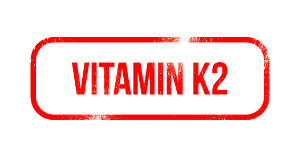 Your birth attest reveals your actual age but your biological age gives a more accurate picture of your health and life expectancy. Our biological age and cardiovascular health are closely connected, with atherosclerosis and arterial stiffness representing a progressive process that eventually leads to the majority of deaths. Nonetheless, you can do a lot yourself by making sure to get sufficient amounts the nutrients that are most vital for good cardiovascular health. In this article, we will look closer at some current studies of vitamin K2, Q10, selenium, and omega-3, all of which are essential nutrients that prevent, each in their own way, atherosclerosis, arterial stiffness, and premature death as a result of having high heart age.
Your birth attest reveals your actual age but your biological age gives a more accurate picture of your health and life expectancy. Our biological age and cardiovascular health are closely connected, with atherosclerosis and arterial stiffness representing a progressive process that eventually leads to the majority of deaths. Nonetheless, you can do a lot yourself by making sure to get sufficient amounts the nutrients that are most vital for good cardiovascular health. In this article, we will look closer at some current studies of vitamin K2, Q10, selenium, and omega-3, all of which are essential nutrients that prevent, each in their own way, atherosclerosis, arterial stiffness, and premature death as a result of having high heart age.
 Eat plenty of oily fish from clean oceans or take a fish oil supplement to make sure that you get enough of the essential omega-3 fatty acids. It lowers your risk of premature death by protecting you against atherosclerosis and a number of other diseases. In fact, blood levels of omega-3 tell a lot more than levels of cholesterol, according to a new study that is published in Journal of Clinical Lipidology.
Eat plenty of oily fish from clean oceans or take a fish oil supplement to make sure that you get enough of the essential omega-3 fatty acids. It lowers your risk of premature death by protecting you against atherosclerosis and a number of other diseases. In fact, blood levels of omega-3 tell a lot more than levels of cholesterol, according to a new study that is published in Journal of Clinical Lipidology.
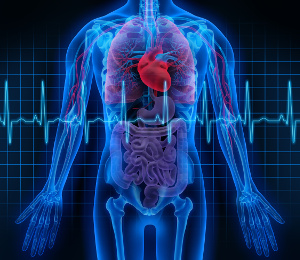 Cardiovascular diseases are widespread and one of the major causes of death. The risk is increased by factors such as ageing, diabetes, and overweight. One of the underlying causes is oxidative stress, which is an imbalance between free radicals and antioxidants. Q10, which is involved in cellular energy turnover, happens to be one of the most powerful antioxidants. According to a review article that is published in the scientific journal Antioxidants, supplementation with Q10 can reduce oxidative stress and cardiovascular mortality. It can also improve quality of life and increase the chances of survival. Generally speaking, Q10 has a huge potential for anyone with a desire to remain healthy, and it is important to choose a supplement with documented quality and bioavailability.
Cardiovascular diseases are widespread and one of the major causes of death. The risk is increased by factors such as ageing, diabetes, and overweight. One of the underlying causes is oxidative stress, which is an imbalance between free radicals and antioxidants. Q10, which is involved in cellular energy turnover, happens to be one of the most powerful antioxidants. According to a review article that is published in the scientific journal Antioxidants, supplementation with Q10 can reduce oxidative stress and cardiovascular mortality. It can also improve quality of life and increase the chances of survival. Generally speaking, Q10 has a huge potential for anyone with a desire to remain healthy, and it is important to choose a supplement with documented quality and bioavailability.
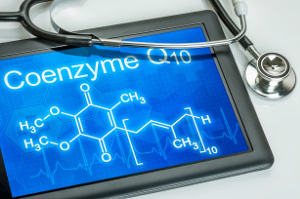 Diabetes damages the circulatory system in a number of ways that are linked to impaired quality of life and early death. A meta-analysis shows that if type 2 diabetics take supplements of Q10 it lowers their risk of cardiovascular disease by reducing levels of total cholesterol and LDL cholesterol. Another positive effect of Q10 is that it serves as a unique antioxidant that counteracts oxidative stress, which is a major cause of atherosclerosis and cardiovascular damage. One of the problems of using cholesterol-lowering statins is that it inhibits the body’s endogenous Q10 synthesis, but this is something one can compensate for. According to Danish research, it is also a good idea to limit your carbohydrate intake and follow the new dietary guidelines that help stabilize blood sugar levels.
Diabetes damages the circulatory system in a number of ways that are linked to impaired quality of life and early death. A meta-analysis shows that if type 2 diabetics take supplements of Q10 it lowers their risk of cardiovascular disease by reducing levels of total cholesterol and LDL cholesterol. Another positive effect of Q10 is that it serves as a unique antioxidant that counteracts oxidative stress, which is a major cause of atherosclerosis and cardiovascular damage. One of the problems of using cholesterol-lowering statins is that it inhibits the body’s endogenous Q10 synthesis, but this is something one can compensate for. According to Danish research, it is also a good idea to limit your carbohydrate intake and follow the new dietary guidelines that help stabilize blood sugar levels.
 Selenium is a trace element with a number of essential functions. An estimated one billion people worldwide get too little dietary selenium. The problem is mainly a result of nutrient-depleted farmland. Moreover, blood levels of selenium drop drastically in connection with COVID-19 infections, serious illness, and pregnancy because the body has an increased need for the nutrient. Altogether, selenium deficiency increases the risk of complicated COVID-19 infections, autoimmune diseases such as rheumatoid arthritis, Hashimoto’s thyroiditis, preterm delivery, and miscarriage. Supplementation may help optimize blood levels of selenium, which can be relevant for preventing and treating a number of common diseases, according to an article that is published in International Journal of Medical Sciences.
Selenium is a trace element with a number of essential functions. An estimated one billion people worldwide get too little dietary selenium. The problem is mainly a result of nutrient-depleted farmland. Moreover, blood levels of selenium drop drastically in connection with COVID-19 infections, serious illness, and pregnancy because the body has an increased need for the nutrient. Altogether, selenium deficiency increases the risk of complicated COVID-19 infections, autoimmune diseases such as rheumatoid arthritis, Hashimoto’s thyroiditis, preterm delivery, and miscarriage. Supplementation may help optimize blood levels of selenium, which can be relevant for preventing and treating a number of common diseases, according to an article that is published in International Journal of Medical Sciences.
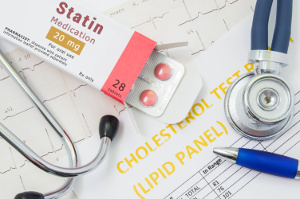 Cholesterol-lowering statins are among some of the most widely sold medical drugs. However, there is growing disagreement about their preventive effect on atherosclerosis and cardiovascular diseases, which are linked to many other factors than cholesterol levels alone. It turns out that statins also block the body’s production of vitamin K2, a nutrient that contributes to removing calcium from the bloodstream. A new study that is published in Medical Sciences concludes that atherosclerosis is more prevalent among statin users than among non-users, regardless of any cardiovascular diseases that have already been diagnosed. In other words, statins actually increase your risk of clogged-up arteries and that contradicts the traditional view. The new study supports earlier research, and it has been known for years that statins also block the endogenous synthesis of coenzyme Q10 and vitamin D, both of which are important for the heart and circulatory system.
Cholesterol-lowering statins are among some of the most widely sold medical drugs. However, there is growing disagreement about their preventive effect on atherosclerosis and cardiovascular diseases, which are linked to many other factors than cholesterol levels alone. It turns out that statins also block the body’s production of vitamin K2, a nutrient that contributes to removing calcium from the bloodstream. A new study that is published in Medical Sciences concludes that atherosclerosis is more prevalent among statin users than among non-users, regardless of any cardiovascular diseases that have already been diagnosed. In other words, statins actually increase your risk of clogged-up arteries and that contradicts the traditional view. The new study supports earlier research, and it has been known for years that statins also block the endogenous synthesis of coenzyme Q10 and vitamin D, both of which are important for the heart and circulatory system.
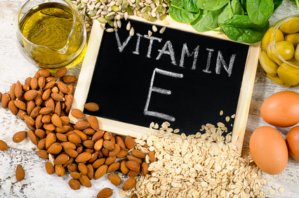 Vitamin E is said to be a powerful antioxidant that counteracts wrinkles, reduces the degeneration of joints in rheumatoid arthritis, and even protects against atherosclerosis and cancer. However, studies have shown contradictory results, and the positive effects are most probably a result of luck. Now, a team of international scientists has demonstrated that the effect of vitamin E is not related to the vitamin itself but rather to the effect of a vitamin E-dependent metabolite that is produced in the liver. The researchers see a huge potential in vitamin E therapy that is tailored to fit each person’s individual utilization and metabolism of the nutrient. Vitamin E supplements should contain natural forms of the vitamin to provide the best effect.
Vitamin E is said to be a powerful antioxidant that counteracts wrinkles, reduces the degeneration of joints in rheumatoid arthritis, and even protects against atherosclerosis and cancer. However, studies have shown contradictory results, and the positive effects are most probably a result of luck. Now, a team of international scientists has demonstrated that the effect of vitamin E is not related to the vitamin itself but rather to the effect of a vitamin E-dependent metabolite that is produced in the liver. The researchers see a huge potential in vitamin E therapy that is tailored to fit each person’s individual utilization and metabolism of the nutrient. Vitamin E supplements should contain natural forms of the vitamin to provide the best effect.
 It is commonly known that fish oil with its high content of the two omega-3 fatty acids EPA and DHA helps prevent atherosclerosis. According to a new international study, it appears to be DHA that has the major effect. This new insight, which has surprised the scientists, is relevant to public health because cardiovascular disease continues to be the leading cause of death.
It is commonly known that fish oil with its high content of the two omega-3 fatty acids EPA and DHA helps prevent atherosclerosis. According to a new international study, it appears to be DHA that has the major effect. This new insight, which has surprised the scientists, is relevant to public health because cardiovascular disease continues to be the leading cause of death.
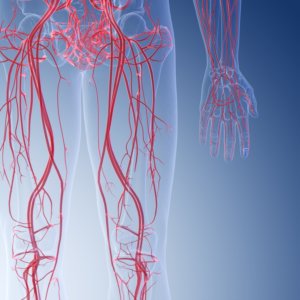 Peripheral circulatory disorders are primarily caused by clogged blood vessels in the extremities. Symptoms typically include walking-induced leg pain, cold hands and feet, or impotence caused by a poor blood supply. According to a new study that is published in the science journal Lipids, people with peripheral circulatory disorders have lower levels of omega-3 in their blood compared with people who do not suffer from these diseases. Omega-3 is believed to have several mechanisms that protect against atherosclerosis. It is also important to make sure to consume omega-3 in the right balance with omega-6.
Peripheral circulatory disorders are primarily caused by clogged blood vessels in the extremities. Symptoms typically include walking-induced leg pain, cold hands and feet, or impotence caused by a poor blood supply. According to a new study that is published in the science journal Lipids, people with peripheral circulatory disorders have lower levels of omega-3 in their blood compared with people who do not suffer from these diseases. Omega-3 is believed to have several mechanisms that protect against atherosclerosis. It is also important to make sure to consume omega-3 in the right balance with omega-6.
 Vitamin K is lipid-soluble and was discovered by the Danish professor and Nobel Prize laureate Henrik Dam. There are three different forms with different functions. Vitamin K1 is primarily found in green plants, whereas vitamin K2 is produced by bacteria, and vitamin K3 is synthetic.
Vitamin K is lipid-soluble and was discovered by the Danish professor and Nobel Prize laureate Henrik Dam. There are three different forms with different functions. Vitamin K1 is primarily found in green plants, whereas vitamin K2 is produced by bacteria, and vitamin K3 is synthetic.
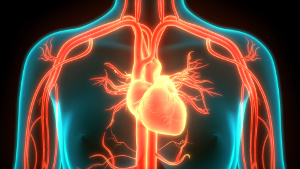 The diet’s content of vitamin K1 and vitamin K2 lowers the risk of atherosclerosis and cardiovascular disease by way of several mechanisms, yet there are relatively few studies that show the relation. In a Danish study that is published in Journal of the American Heart Association, scientists looked closer at how the content of the two forms vitamin K in the diet affect the risk of hospitalization linked to atherosclerosis and cardiovascular disease. So how does vitamin K counteract atherosclerosis and how much of the nutrient do we need?
The diet’s content of vitamin K1 and vitamin K2 lowers the risk of atherosclerosis and cardiovascular disease by way of several mechanisms, yet there are relatively few studies that show the relation. In a Danish study that is published in Journal of the American Heart Association, scientists looked closer at how the content of the two forms vitamin K in the diet affect the risk of hospitalization linked to atherosclerosis and cardiovascular disease. So how does vitamin K counteract atherosclerosis and how much of the nutrient do we need?
 Vitamin K occurs in various forms and has a number of different biological function. The most recent research focuses on vitamin K2, which is of vital importance to the body’s calcium distribution and therefore has a crucial role in bone building and in the prevention of atherosclerosis. Vitamin K2 is also important for various proteins that are involved in energy turnover, blood sugar regulation, and cancer prevention, according to a review article that is published in BioMed Research International. Actual vitamin K2 deficiencies are considered rare, yet there are studies to suggest that many people lack the nutrient due to altered diet habits and the use of cholesterol-lowering medicine. The question is how much vitamin K2 do we actually need?
Vitamin K occurs in various forms and has a number of different biological function. The most recent research focuses on vitamin K2, which is of vital importance to the body’s calcium distribution and therefore has a crucial role in bone building and in the prevention of atherosclerosis. Vitamin K2 is also important for various proteins that are involved in energy turnover, blood sugar regulation, and cancer prevention, according to a review article that is published in BioMed Research International. Actual vitamin K2 deficiencies are considered rare, yet there are studies to suggest that many people lack the nutrient due to altered diet habits and the use of cholesterol-lowering medicine. The question is how much vitamin K2 do we actually need?
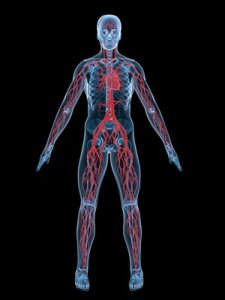 Lack of vitamin K2 increases your risk of stiff arteries and atherosclerosis, which is the leading cause of death worldwide. This was observed in two new studies, one that is published in the American Journal of Hypertension, the other in the journal Nephron. A third study that is published in Clinical Nutrition reveals that daily supplementation with vitamin K2 lowers the risk of early death caused by cardiovascular disease. Our diet used to provide substantially more vitamin K2 from fermented foods than now, and this type of food deserves a comeback. It is also important to know the difference between vitamin K1 and vitamin K2.
Lack of vitamin K2 increases your risk of stiff arteries and atherosclerosis, which is the leading cause of death worldwide. This was observed in two new studies, one that is published in the American Journal of Hypertension, the other in the journal Nephron. A third study that is published in Clinical Nutrition reveals that daily supplementation with vitamin K2 lowers the risk of early death caused by cardiovascular disease. Our diet used to provide substantially more vitamin K2 from fermented foods than now, and this type of food deserves a comeback. It is also important to know the difference between vitamin K1 and vitamin K2.
- even in smokers
 It has been known for long that vitamin K2 is important for circulation and bone health. According to a new study, vitamin K2 also lowers the risk of cardiovascular disease in smokers and other nicotine users. This is because vitamin K2 counteracts oxidative stress and atherosclerosis. The scientists stress how important vitamin K2 is for public health, including otherwise unhealthy groups such as smokers.
It has been known for long that vitamin K2 is important for circulation and bone health. According to a new study, vitamin K2 also lowers the risk of cardiovascular disease in smokers and other nicotine users. This is because vitamin K2 counteracts oxidative stress and atherosclerosis. The scientists stress how important vitamin K2 is for public health, including otherwise unhealthy groups such as smokers.
 Vitamin K2 clears calcium from the bloodstream and embeds it in bone tissue. Therefore, vitamin K2 is of vital importance to bone building and the prevention of atherosclerosis. Medical News Bulletin has placed even more focus on vitamin K2’s role in maintaining strong bones and reducing the risk of a fracture. The question is, how much vitamin K2 do we really need for optimal bone health, and why is it important to know the difference between vitamin K1 and vitamin K2?
Vitamin K2 clears calcium from the bloodstream and embeds it in bone tissue. Therefore, vitamin K2 is of vital importance to bone building and the prevention of atherosclerosis. Medical News Bulletin has placed even more focus on vitamin K2’s role in maintaining strong bones and reducing the risk of a fracture. The question is, how much vitamin K2 do we really need for optimal bone health, and why is it important to know the difference between vitamin K1 and vitamin K2?
 Cholesterol is an essential compound with many different functions. However, it can also turn into a potentially dangerous substance if it oxidizes and is embedded in the blood vessel walls. This oxidative process is what eventually leads to atherosclerosis. The trace element selenium protects against atherosclerosis because of its antioxidant properties and because of other mechanisms, according to a review article published in Biomedicine. This is highly relevant in our part of the world where cardiovascular disease is the leading cause of death, and where seleniumdeficiency is so widespread.
Cholesterol is an essential compound with many different functions. However, it can also turn into a potentially dangerous substance if it oxidizes and is embedded in the blood vessel walls. This oxidative process is what eventually leads to atherosclerosis. The trace element selenium protects against atherosclerosis because of its antioxidant properties and because of other mechanisms, according to a review article published in Biomedicine. This is highly relevant in our part of the world where cardiovascular disease is the leading cause of death, and where seleniumdeficiency is so widespread.







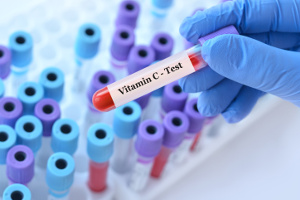 Most people are unaware of vitamin C’s key role in mental health and mood. According to a large population study that is published in Frontiers in Nutrition, having higher levels of
Most people are unaware of vitamin C’s key role in mental health and mood. According to a large population study that is published in Frontiers in Nutrition, having higher levels of 


 There is a clear link between
There is a clear link between  Atherosclerosis is one of the leading causes of death in the Western world, and the heart is particularly vulnerable. According to a study from the University of Birmingham, Alabama (USA), foods that are rich in potassium such as bananas, potatoes, avocado, and almonds protect against this disease, which takes years to develop. Beware that too much salt and the use of diuretics may deplete the body’s potassium stores.
Atherosclerosis is one of the leading causes of death in the Western world, and the heart is particularly vulnerable. According to a study from the University of Birmingham, Alabama (USA), foods that are rich in potassium such as bananas, potatoes, avocado, and almonds protect against this disease, which takes years to develop. Beware that too much salt and the use of diuretics may deplete the body’s potassium stores. On a global scale, atherosclerosis is the leading cause of death due to heart failure or stroke. Atherosclerosis causes symptoms such as breathing difficulty, calf pain,
On a global scale, atherosclerosis is the leading cause of death due to heart failure or stroke. Atherosclerosis causes symptoms such as breathing difficulty, calf pain, On a global scale, cardiovascular disease and coronary occlusion cause more deaths than any other factor. However, according to a large meta-analysis from Harvard T. H. Chan School of Public Health and Brigham and Women’s Hospital in Boston, USA, people who take
On a global scale, cardiovascular disease and coronary occlusion cause more deaths than any other factor. However, according to a large meta-analysis from Harvard T. H. Chan School of Public Health and Brigham and Women’s Hospital in Boston, USA, people who take  Hypertension is a growing problem. Worldwide, it causes more premature deaths than any other risk factor. Chinese researchers have now found that supplementation with a combination of folic acid and anti-hypertensive medicine lowers the risk of stroke by nearly 75 percent. It is important to underline that many people have elevated blood pressure without knowing about it, and many things can cause a
Hypertension is a growing problem. Worldwide, it causes more premature deaths than any other risk factor. Chinese researchers have now found that supplementation with a combination of folic acid and anti-hypertensive medicine lowers the risk of stroke by nearly 75 percent. It is important to underline that many people have elevated blood pressure without knowing about it, and many things can cause a  Coronary occlusion is the leading cause of death worldwide. Type 2 diabetes is spreading like a bushfire and this disease is characterized by atherosclerosis and early death. Diet and lifestyle are of vital importance and the same goes for
Coronary occlusion is the leading cause of death worldwide. Type 2 diabetes is spreading like a bushfire and this disease is characterized by atherosclerosis and early death. Diet and lifestyle are of vital importance and the same goes for  There is absolutely no reason not to consume eggs, meat, butter and other cholesterol-filled foods with a good conscience. American dietary guidelines have finally exonerated cholesterol, which happens to be an essential compound. Many scientists actually claim that atherosclerosis and cardiovascular disease are both a result of inflammation and lack of specific micronutrients. It is important to pay attention to factors that are known to promote inflammation in the body and take the necessary steps by looking after your circulatory system, making healthy lifestyle choices, and possibly even using supplements.
There is absolutely no reason not to consume eggs, meat, butter and other cholesterol-filled foods with a good conscience. American dietary guidelines have finally exonerated cholesterol, which happens to be an essential compound. Many scientists actually claim that atherosclerosis and cardiovascular disease are both a result of inflammation and lack of specific micronutrients. It is important to pay attention to factors that are known to promote inflammation in the body and take the necessary steps by looking after your circulatory system, making healthy lifestyle choices, and possibly even using supplements.
 Get lots of sunlight. It is the richest source of
Get lots of sunlight. It is the richest source of 
 In a matter of four months only, large doses of
In a matter of four months only, large doses of 
 Heart failure is when the heart loses power and is no longer able to deliver blood to the different parts of the body. Typical symptoms are shortness of breath and physical exhaustion. There may also be symptoms like fluid retention, persistent coughing, chest tightness, increased sweating, or cold sensitivity. Chronic heart failure may be caused by different things, and it is a life-threatening condition. However, according to a study that is published in Journal of Clinical Investigation, magnesium supplementation can improve a type of heart failure called diastolic dysfunction. Previous studies have demonstrated that supplements of Q10 can also improve cardiac function in patients with heart failure.
Heart failure is when the heart loses power and is no longer able to deliver blood to the different parts of the body. Typical symptoms are shortness of breath and physical exhaustion. There may also be symptoms like fluid retention, persistent coughing, chest tightness, increased sweating, or cold sensitivity. Chronic heart failure may be caused by different things, and it is a life-threatening condition. However, according to a study that is published in Journal of Clinical Investigation, magnesium supplementation can improve a type of heart failure called diastolic dysfunction. Previous studies have demonstrated that supplements of Q10 can also improve cardiac function in patients with heart failure. Global heating and the whole climate debate have greatly increased the number of vegans and vegetarians. Their intensions may be good, but what they do not know is that their lifestyle can lead to serious health problems. A Spanish study of vegetarians and vegans has shown that 11% of the study participants had subclinical or clinical vitamin B12 deficiency. Earlier studies supporting this finding. Because the problem is insidious, it is often difficult to see the link between the deficiency and the symptoms caused by anemia or disturbances in the nervous system. The lack of
Global heating and the whole climate debate have greatly increased the number of vegans and vegetarians. Their intensions may be good, but what they do not know is that their lifestyle can lead to serious health problems. A Spanish study of vegetarians and vegans has shown that 11% of the study participants had subclinical or clinical vitamin B12 deficiency. Earlier studies supporting this finding. Because the problem is insidious, it is often difficult to see the link between the deficiency and the symptoms caused by anemia or disturbances in the nervous system. The lack of  Your birth attest reveals your actual age but your biological age gives a more accurate picture of your health and life expectancy. Our biological age and cardiovascular health are closely connected, with atherosclerosis and arterial stiffness representing a progressive process that eventually leads to the majority of deaths. Nonetheless, you can do a lot yourself by making sure to get sufficient amounts the nutrients that are most vital for good cardiovascular health. In this article, we will look closer at some current studies of vitamin K2, Q10, selenium, and omega-3, all of which are essential nutrients that prevent, each in their own way, atherosclerosis, arterial stiffness, and premature death as a result of having high heart age.
Your birth attest reveals your actual age but your biological age gives a more accurate picture of your health and life expectancy. Our biological age and cardiovascular health are closely connected, with atherosclerosis and arterial stiffness representing a progressive process that eventually leads to the majority of deaths. Nonetheless, you can do a lot yourself by making sure to get sufficient amounts the nutrients that are most vital for good cardiovascular health. In this article, we will look closer at some current studies of vitamin K2, Q10, selenium, and omega-3, all of which are essential nutrients that prevent, each in their own way, atherosclerosis, arterial stiffness, and premature death as a result of having high heart age. Eat plenty of oily fish from clean oceans or take a fish oil supplement to make sure that you get enough of the essential
Eat plenty of oily fish from clean oceans or take a fish oil supplement to make sure that you get enough of the essential  Cardiovascular diseases are widespread and one of the major causes of death. The risk is increased by factors such as ageing, diabetes, and overweight. One of the underlying causes is oxidative stress, which is an imbalance between free radicals and antioxidants.
Cardiovascular diseases are widespread and one of the major causes of death. The risk is increased by factors such as ageing, diabetes, and overweight. One of the underlying causes is oxidative stress, which is an imbalance between free radicals and antioxidants.  Diabetes damages the circulatory system in a number of ways that are linked to impaired quality of life and early death. A meta-analysis shows that if type 2 diabetics take supplements of
Diabetes damages the circulatory system in a number of ways that are linked to impaired quality of life and early death. A meta-analysis shows that if type 2 diabetics take supplements of 
 Cholesterol-lowering statins are among some of the most widely sold medical drugs. However, there is growing disagreement about their preventive effect on atherosclerosis and cardiovascular diseases, which are linked to many other factors than cholesterol levels alone. It turns out that statins also block the body’s production of
Cholesterol-lowering statins are among some of the most widely sold medical drugs. However, there is growing disagreement about their preventive effect on atherosclerosis and cardiovascular diseases, which are linked to many other factors than cholesterol levels alone. It turns out that statins also block the body’s production of
 It is commonly known that fish oil with its high content of the two omega-3 fatty acids EPA and DHA helps prevent atherosclerosis. According to a new international study, it appears to be DHA that has the major effect. This new insight, which has surprised the scientists, is relevant to public health because cardiovascular disease continues to be the leading cause of death.
It is commonly known that fish oil with its high content of the two omega-3 fatty acids EPA and DHA helps prevent atherosclerosis. According to a new international study, it appears to be DHA that has the major effect. This new insight, which has surprised the scientists, is relevant to public health because cardiovascular disease continues to be the leading cause of death. Peripheral circulatory disorders are primarily caused by clogged blood vessels in the extremities. Symptoms typically include walking-induced leg pain, cold hands and feet, or impotence caused by a poor blood supply. According to a new study that is published in the science journal Lipids, people with peripheral circulatory disorders have lower levels of
Peripheral circulatory disorders are primarily caused by clogged blood vessels in the extremities. Symptoms typically include walking-induced leg pain, cold hands and feet, or impotence caused by a poor blood supply. According to a new study that is published in the science journal Lipids, people with peripheral circulatory disorders have lower levels of  Vitamin K is lipid-soluble and was discovered by the Danish professor and Nobel Prize laureate Henrik Dam. There are three different forms with different functions. Vitamin K1 is primarily found in green plants, whereas vitamin K2 is produced by bacteria, and vitamin K3 is synthetic.
Vitamin K is lipid-soluble and was discovered by the Danish professor and Nobel Prize laureate Henrik Dam. There are three different forms with different functions. Vitamin K1 is primarily found in green plants, whereas vitamin K2 is produced by bacteria, and vitamin K3 is synthetic. The diet’s content of vitamin K1 and vitamin K2 lowers the risk of atherosclerosis and cardiovascular disease by way of several mechanisms, yet there are relatively few studies that show the relation. In a Danish study that is published in Journal of the American Heart Association, scientists looked closer at how the content of the two forms vitamin K in the diet affect the risk of hospitalization linked to atherosclerosis and cardiovascular disease. So how does
The diet’s content of vitamin K1 and vitamin K2 lowers the risk of atherosclerosis and cardiovascular disease by way of several mechanisms, yet there are relatively few studies that show the relation. In a Danish study that is published in Journal of the American Heart Association, scientists looked closer at how the content of the two forms vitamin K in the diet affect the risk of hospitalization linked to atherosclerosis and cardiovascular disease. So how does 
 Lack of vitamin K2 increases your risk of stiff arteries and atherosclerosis, which is the leading cause of death worldwide. This was observed in two new studies, one that is published in the American Journal of Hypertension, the other in the journal Nephron. A third study that is published in Clinical Nutrition reveals that daily supplementation with vitamin K2 lowers the risk of early death caused by cardiovascular disease. Our diet used to provide substantially more vitamin K2 from fermented foods than now, and this type of food deserves a comeback. It is also important to know the difference between vitamin K1 and vitamin K2.
Lack of vitamin K2 increases your risk of stiff arteries and atherosclerosis, which is the leading cause of death worldwide. This was observed in two new studies, one that is published in the American Journal of Hypertension, the other in the journal Nephron. A third study that is published in Clinical Nutrition reveals that daily supplementation with vitamin K2 lowers the risk of early death caused by cardiovascular disease. Our diet used to provide substantially more vitamin K2 from fermented foods than now, and this type of food deserves a comeback. It is also important to know the difference between vitamin K1 and vitamin K2. It has been known for long that
It has been known for long that 
 "After about one week of taking the Q10 supplement I could feel a huge difference," says 23-year old Alan Piccini, who has been suffering from extreme fatigue and muscle aches ever since he was a child.
"After about one week of taking the Q10 supplement I could feel a huge difference," says 23-year old Alan Piccini, who has been suffering from extreme fatigue and muscle aches ever since he was a child. “Taking capsules with co-enzyme Q10 has freed me of the severe side effects of my cholesterol lowering medicine,” Mrs Franken explains.
“Taking capsules with co-enzyme Q10 has freed me of the severe side effects of my cholesterol lowering medicine,” Mrs Franken explains.